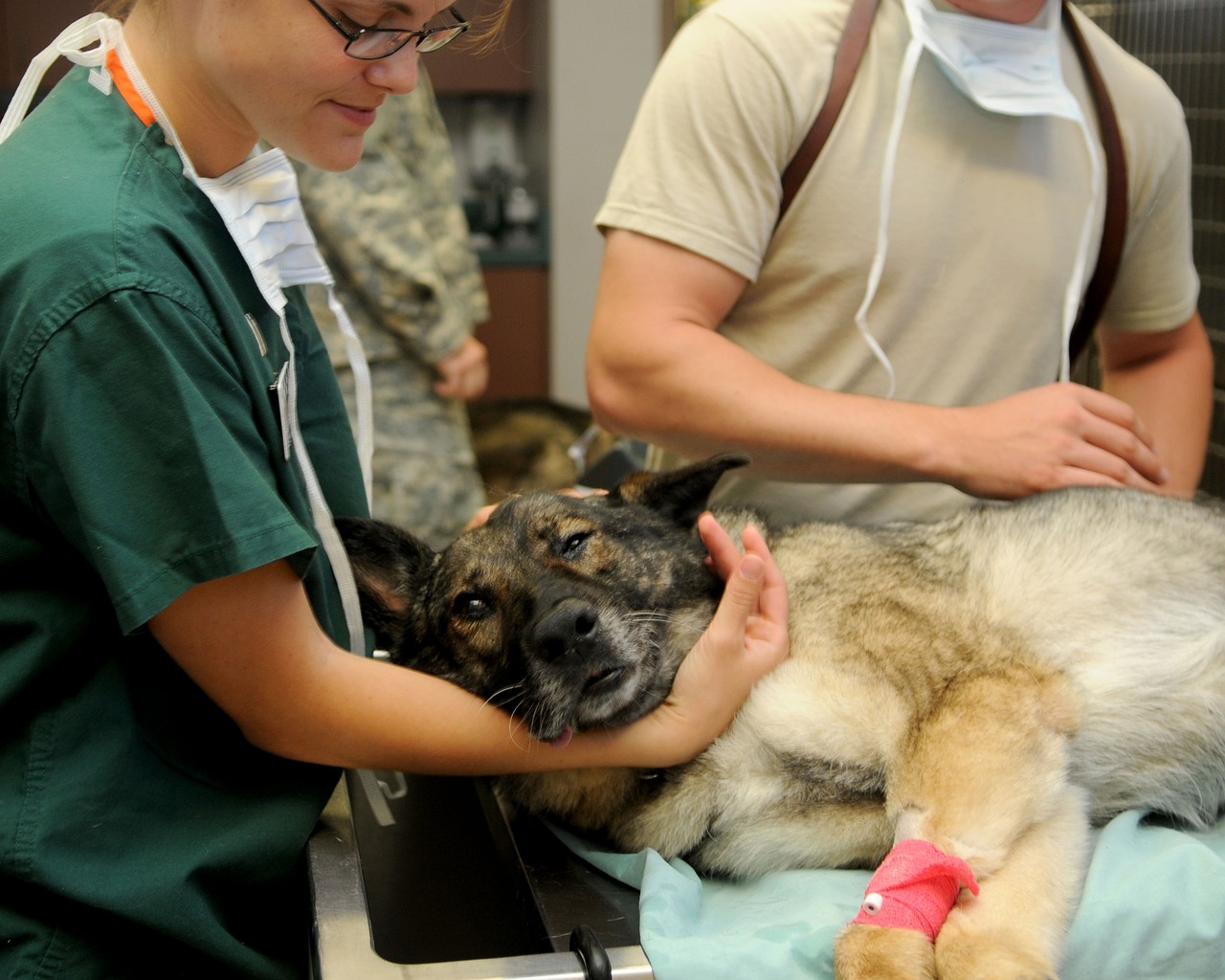Skin and coat health are among the top concerns for pet owners, with dermatological issues accounting for a large percentage of veterinary visits each year. From chronic allergies and parasitic infestations to autoimmune conditions and complex skin infections, these cases require far more than general practice knowledge. Hiring a veterinary dermatologist ensures that hospitals can diagnose and treat even the most challenging skin, ear, and allergy conditions. In addition, dermatologists reduce referral leakage, strengthen client loyalty, and improve overall patient outcomes.
Pulivarthi Group is a specialized veterinary dermatology recruitment agency that connects hospitals, clinics, and specialty centers with board-certified dermatologists, skin specialists, and trained technicians. Whether you need locum veterinary dermatologist staffing for seasonal allergy spikes, temporary dermatology coverage during staff leave, or permanent hires to anchor a full-service dermatology department, we deliver tailored veterinary dermatology staffing solutions. As a trusted veterinary dermatologist staffing agency, we ensure hospitals gain access to pre-vetted specialists who bring both advanced clinical expertise and seamless team integration.
Why hire a Veterinary Dermatologist
Dermatology is not just about treating itchy skin; it is about solving complex, often chronic cases that affect pets’ quality of life. Many general practitioners can manage routine allergies or skin infections, yet dermatologists are needed when cases become resistant to standard treatments. For example, a board-certified dermatologist can perform intradermal allergy testing, advanced cytology, or biopsies that uncover underlying conditions. Consequently, hospitals can offer more precise treatments, reducing client frustration and increasing case resolution rates.
Hiring a veterinary skin specialist also generates consistent revenue. Chronic dermatology patients require regular follow-ups, medication management, and rechecks, which lead to long-term client relationships. In addition, dermatologists support general practitioners by taking on difficult cases, freeing them to focus on preventive and wellness medicine. Most importantly, pet owners develop stronger trust in hospitals that provide specialty skin care, since skin and coat health are highly visible to clients.
Benefits of hiring a veterinary dermatologist include:
-
Accurate diagnosis and treatment of chronic skin and allergy conditions.
-
Increased case resolution rates and reduced referral leakage.
-
Consistent revenue through follow-ups and long-term care.
-
Stronger client satisfaction and loyalty.
-
Better collaboration between GPs and specialists.
For dermatology standards, see American College of Veterinary Dermatology (ACVD) (acvd.org).
Types of Veterinary Dermatologist Roles
Dermatology roles vary depending on the hospital’s scope and demand. General veterinary dermatologists handle allergies, infections, and common dermatological diseases. Board-certified veterinary dermatologists (DACVD), however, perform advanced procedures such as intradermal allergy testing, immunotherapy formulation, and autoimmune skin disease management.
Some hospitals rely on locum veterinary dermatologists to manage seasonal surges in allergy cases. Others use temporary dermatologists for predictable projects such as dermatology awareness campaigns. Contingent dermatology staffing offers shift-based coverage, which is especially useful for specialty hospitals running high caseloads. In addition, veterinary skin specialists with strong interests in dermatology support teaching hospitals, telemedicine platforms, and referral centers.
Role types include:
-
General Veterinary Dermatologist
-
Board-Certified Dermatologist (DACVD)
-
Locum Veterinary Dermatologist
-
Temporary or Contingent Dermatologist
-
Veterinary Skin Specialist for Research/Teaching
Pulivarthi Group Veterinary Dermatology Staffing Services
Staffing dermatologists is one of the most difficult tasks for hospitals because the talent pool is small and demand is high. Pulivarthi Group simplifies this by offering comprehensive veterinary dermatology staffing services. First, we assess your hospital’s needs, whether that means permanent specialists, temporary coverage, or locum support. Then, we create tailored shortlists that align with your case mix, equipment, and scheduling requirements.
For hospitals building long-term dermatology departments, we provide permanent veterinary dermatologist staffing. For seasonal allergy spikes or staff absences, we deliver temporary coverage. In addition, our locum dermatology staffing ensures rapid relief for short-term demands. Contingent staffing models allow hospitals to scale services without committing to permanent overhead, especially valuable for busy spring and summer months when skin cases surge.
Our services include:
-
Permanent Veterinary Dermatologist Staffing
-
Temporary Veterinary Dermatologist Staffing
-
Locum Veterinary Dermatologist Staffing
-
Contingent Dermatology Staffing
-
Veterinary Dermatology Technician Staffing
-
Executive & Service-Line Leader Recruitment
Where Employers Find Veterinary Dermatologists
Veterinary dermatologists are highly sought after, which makes recruitment challenging. Residency programs under the American College of Veterinary Dermatology (ACVD) produce new specialists each year, yet competition for them is intense. Specialty conferences and CE programs also serve as recruitment channels, although timelines are often long. Meanwhile, general job boards rarely provide quality dermatology candidates.
Therefore, the fastest and most effective method is partnering with a veterinary dermatology employment agency like Pulivarthi Group. We maintain a network of dermatologists, both board-certified and residency-trained, and we proactively reach out to passive candidates. As a result, hospitals avoid long delays, reduce vacancy risks, and secure talent faster.
Sourcing channels include:
-
Specialized staffing agencies (Pulivarthi Group)
-
ACVD residencies and training programs
-
Dermatology conferences and CE events
-
Limited use of general job boards
Hiring Challenges and Solutions
Recruiting veterinary dermatologists presents unique obstacles. First, the limited talent pool means that hospitals often compete for the same small group of board-certified dermatologists. Because dermatology residencies are few, supply cannot keep up with demand. Therefore, hospitals must act decisively when a candidate is available.
Second, evaluating true clinical skill is difficult. Generalists may treat routine skin cases, yet advanced dermatologists should demonstrate expertise in intradermal testing, immunotherapy formulation, and autoimmune skin disease management. Employers often rely on case portfolios or working interviews to ensure that candidates have practical experience.
Third, burnout and caseload management can be a risk. Dermatology is chronic-care heavy, and specialists may see the same patients multiple times over months or years. Without proper technician support and scheduling systems, specialists risk fatigue. Consequently, hospitals need strong support structures in place.
Key challenges include:
-
Small pool of board-certified specialists.
-
Difficulty assessing dermatology-specific expertise.
-
Potential burnout from chronic case load.
-
Long recruitment timelines if sourcing alone.
For training and certification pathways, see American College of Veterinary Dermatology (ACVD) (acvd.org).
Qualifications and Licensing Checklist
Veterinary dermatologists must meet both baseline and advanced requirements. At a minimum, they must have a DVM/VMD degree, NAVLE passage, and an active state veterinary license. Because dermatology involves prescribing medications, DEA registration is necessary.
The gold standard is board certification through ACVD, which confirms training in dermatology diagnostics, allergy testing, and advanced therapies. Employers should also look for continuing education records that demonstrate currency in topics like immunotherapy, parasitology, and advanced cytology. Liability coverage, OSHA compliance, and vaccination status are essential for safety.
Qualification checklist includes:
-
DVM/VMD and NAVLE passage.
-
Active state veterinary license.
-
DEA registration for prescription authority.
-
Board certification (DACVD).
-
Liability insurance and OSHA compliance.
-
CE in dermatology and allergy management.
For licensure information, see American Association of Veterinary State Boards (AAVSB) (aavsb.org).
Sample Veterinary Dermatologist Job Description
Role Summary
We are seeking a Board-Certified Veterinary Dermatologist (DACVD) to join our specialty hospital. The dermatologist will diagnose and treat advanced dermatological conditions, lead allergy testing programs, and collaborate with other specialists to ensure comprehensive patient care.
Key Responsibilities
-
Diagnose and manage chronic dermatological conditions.
-
Perform intradermal testing and formulate immunotherapy.
-
Conduct advanced cytology and skin biopsies.
-
Manage parasitic, infectious, and autoimmune skin diseases.
-
Educate clients on long-term treatment and prevention.
-
Mentor general practitioners and technicians in dermatology best practices.
Qualifications
-
DVM/VMD and NAVLE passage.
-
Active state veterinary license and DEA registration.
-
DACVD board certification.
-
Strong diagnostic and client communication skills.
For job description guidance, see AVMA career center (avma.org).
Sample Interview Questions for Veterinary Dermatologists
Hiring dermatologists requires assessing both clinical and communication skills. Since dermatology involves long-term case management, strong client communication is critical.
Examples include:
-
What is your approach to managing chronic atopic dermatitis cases?
-
Tell us about a difficult allergy case and how you resolved it.
-
How do you explain long-term dermatology treatment plans to clients?
-
What safety protocols do you use for allergy testing and immunotherapy?
-
Which continuing education has most influenced your dermatology practice recently?
-
How do you collaborate with general practitioners on dermatology cases?
For structured interview tips, see Veterinary Information Network (VIN) (vin.com).
When to Hire a Veterinary Dermatologist
The right time to hire often becomes clear when hospitals see repeated patterns. If dermatology cases are referred out regularly, it signals lost revenue and declining client satisfaction. In addition, if general practitioners feel overwhelmed by chronic allergy cases or resistant infections, an in-house dermatologist can resolve these efficiently.
Hospitals expanding into specialty care should prioritize dermatology, since skin and allergy cases represent a high proportion of client demand. Seasonal allergy spikes or high volumes of otitis externa may also justify hiring. Ultimately, hiring a dermatologist not only supports medical excellence but also improves client retention.
Triggers for hiring include:
-
High volume of dermatology referrals.
-
Rising caseload of chronic skin or allergy cases.
-
Expansion into specialty or referral services.
-
Seasonal spikes in skin and ear cases.
-
Client demand for advanced allergy management.
How to Evaluate Veterinary Dermatologist Skills
Evaluation should focus on both technical diagnostics and communication style. Employers should request case logs showing experience with intradermal testing, cytology, and immunotherapy. Peer-reviewed publications or residency case reports can also provide evidence of expertise.
Working interviews help assess real-time diagnostic ability, collaboration with technicians, and communication with clients. In addition, employers should verify familiarity with OSHA standards for laboratory safety and DEA compliance for prescription management.
Evaluation methods include:
-
Review of dermatology case portfolios.
-
Working interviews with chronic case evaluations.
-
Client communication role-play.
-
Peer review of diagnostic reports.
-
Verification of compliance knowledge.
Compensation and Rewards for Veterinary Dermatologists
Dermatologists are well-compensated due to their specialized expertise and strong demand. Salaries often include base pay plus production, reflecting the chronic-care model of dermatology.
Hospitals should provide CE allowances, relocation bonuses, and support for ACVD membership. Because dermatology caseloads can be repetitive, offering predictable scheduling and strong technician support increases job satisfaction. Mental health and wellness programs are also valued, as dermatology requires long-term client interaction.
Compensation packages include:
-
Base salary plus production incentives.
-
CE and ACVD membership reimbursement.
-
Sign-on and relocation bonuses.
-
Health, wellness, and liability coverage.
-
Technician and scheduling support.
For compensation data, see AVMA veterinary salary reports (avma.org/resources-tools/reports).
SOPs Worth Formalizing in Veterinary Dermatology
Dermatology requires strict Standard Operating Procedures (SOPs) to ensure consistency. Common SOPs include allergy testing protocols, client education templates, and medication safety standards.
Because dermatology involves long-term care, client follow-up SOPs are critical. These should define communication timelines for rechecks, test results, and medication updates. Controlled substance handling and OSHA compliance also apply to dermatology practices.
Essential dermatology SOPs include:
-
Allergy testing and immunotherapy protocols.
-
Cytology and biopsy procedures.
-
Client communication and follow-up systems.
-
Controlled substance compliance (DEA).
-
OSHA safety and infection control protocols.
Retention Strategies for Veterinary Dermatologists
Retaining dermatologists requires addressing the unique demands of chronic case management. Predictable scheduling and strong technician support reduce burnout. Opportunities for continuing education, research participation, and conference attendance keep specialists engaged.
Recognition is equally important. Dermatologists should be included in leadership discussions and hospital growth strategies. In addition, celebrating dermatology case successes builds morale and reinforces value. Wellness programs and mental health support are critical to maintaining long-term retention.
Retention strategies include:
-
Predictable caseload and schedule.
-
Technician and diagnostic support.
-
CE and conference participation.
-
Recognition and leadership opportunities.
-
Mental health and wellness support.
For workforce planning, see American Association of Veterinary Clinicians (AAVC) (vetclinicians.org).
How Pulivarthi Group Delivers Veterinary Dermatology Staffing
Pulivarthi Group specializes in veterinary dermatology staffing solutions, ensuring hospitals gain access to top dermatology talent. We start by defining your needs, including caseloads, culture, and scheduling. Then, we source candidates through ACVD networks, residency programs, and passive talent pipelines.
Each candidate is vetted for board certification, diagnostic expertise, and communication skills. We deliver calibrated shortlists, coordinate interviews, and manage credentialing. After placement, we gather feedback and refine future searches. Whether you need locum dermatology coverage, temporary staff, or a permanent DACVD to anchor your specialty services, Pulivarthi Group delivers quickly and reliably.
Ready to Hire a Veterinary Dermatologist?
Dermatology is one of the most in-demand specialties in veterinary medicine. Hiring a dermatologist ensures better patient outcomes, higher client satisfaction, and stronger financial performance.
Pulivarthi Group is your trusted veterinary dermatology employment agency, offering permanent, locum, temporary, and contingent staffing solutions. With pre-vetted candidates and a streamlined process, we help hospitals secure dermatology expertise without delays.
Don’t let referrals or chronic case backlogs slow your hospital down. Book a meeting with Pulivarthi Group today to access a tailored shortlist of dermatologists ready to elevate your services.














